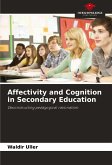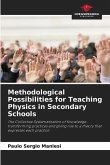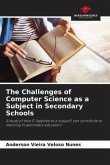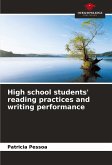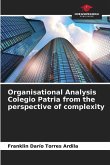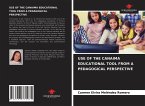The perception that there is no dialogue between language professionals and the documents that regulate the teaching of Portuguese is very enlightening and explains why there has been fragmentation in terms of working with reading, text production and grammatical reflection and, even more so, why students, for their part, also experience classroom situations in which different conceptual and methodological visions come into conflict. Added to this is the fact that most students don't like the subject of Portuguese because it is often restricted to the rigid teaching of "traditional" grammar. This book brings together some analyses of how students in a 3rd year secondary school class at a public technical school conceive of the study of language grammar, and how they behave when studying grammatical content during lessons. Our research is qualitative-interpretativist, ethnographic in nature, and for the elaboration of its corpus, it relied on field notes collected from class observations and questionnaires applied to students aged between 15 and 18 years old from a federal public school.
Bitte wählen Sie Ihr Anliegen aus.
Rechnungen
Retourenschein anfordern
Bestellstatus
Storno



